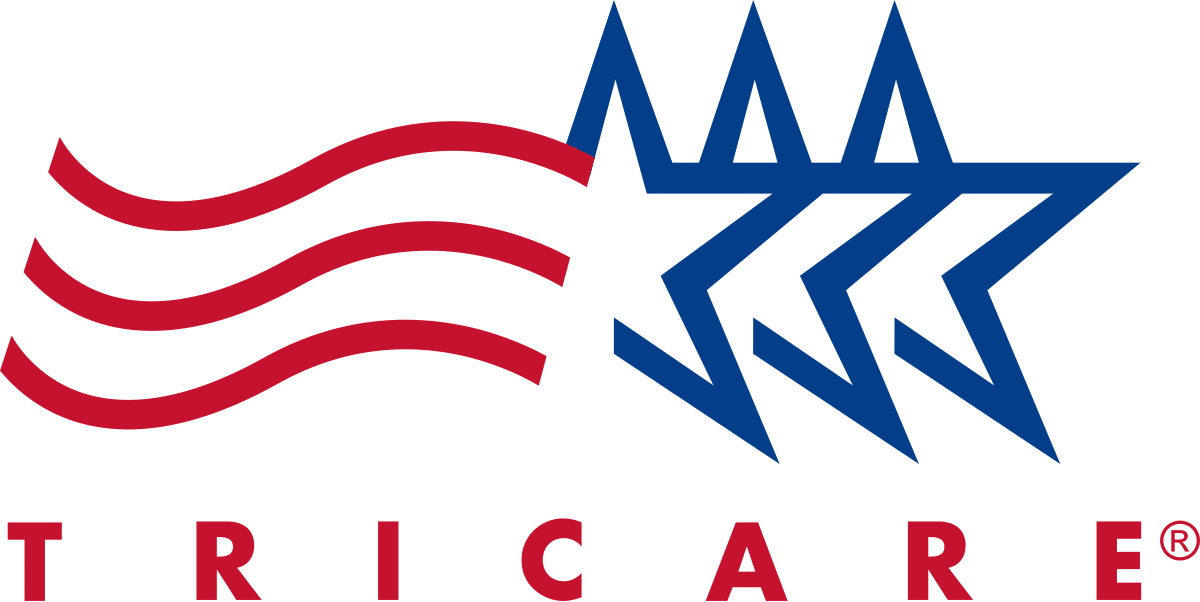Cognitive Behavioral (CBT) Therapy in Rome, Georgia
Cognitive Behavioral (CBT) Therapy in Rome, Georgia

Cognitive Behavioral Therapy (CBT) is a popular form of talk therapy used to treat various mental health issues. Many people seek CBT Therapy in Rome, Georgia, to help manage their thoughts and behaviors. CBT helps patients identify negative thinking patterns and learn coping skills to handle challenging situations better.
Fairland Recovery Center’s Cognitive Behavioral Therapy Center in Rome, GA, offers several options for those looking to start CBT. Our licensed professional counselors (LPC) specialize in this evidence-based approach and have years of experience. They work with clients to address issues like anxiety, depression, and stress management.
Residents of Rome, Georgia, can find CBT services at local mental health clinics, private practices, and through online platforms. Some providers offer a blend of CBT with other therapeutic approaches to create a more personalized treatment plan.
Understanding Cognitive Behavioral Therapy
Cognitive Behavioral Therapy (CBT) is a powerful approach to mental health treatment. It focuses on changing negative thought patterns and behaviors. CBT helps people develop coping skills to manage various mental health issues.
Core Principles of CBT
CBT is based on the idea that thoughts, feelings, and behaviors are connected. It aims to identify and change unhelpful thinking and behavior patterns. The therapy emphasizes the present rather than the past.
Key principles of CBT include:
- Recognizing distorted thinking
- Reevaluating thoughts in light of reality
- Improving problem-solving skills
- Building confidence in one’s abilities
CBT helps people become aware of negative thoughts. It teaches them to respond to challenging situations more effectively. The therapy is usually short-term and goal-oriented.
CBT Techniques and Approaches
CBT uses various mindfulness-based techniques to help people change their thoughts and behaviors. These methods are practical and can be used in daily life.
Common CBT techniques include:
- Cognitive restructuring
- Exposure therapy
- Behavioral activation
- Mindfulness practices
Cognitive behavioral therapy may incorporate elements of other therapies, such as dialectical behavior therapy (DBT) or trauma-focused CBT.
Therapists might use role-playing to practice new skills. They may also assign homework to reinforce lessons from therapy sessions. CBT can be adapted for different age groups and mental health conditions.
Rome CBT Therapy for Specific Issues
Cognitive Behavioral Therapy (CBT) in Rome, GA, helps people with many mental health concerns. CBT teaches skills to change thoughts and actions, leading to better moods and behaviors.
Depression and Mood Disorders
Fairland Recovery Center therapists use CBT to treat various mood disorders. It helps people spot negative thoughts that make them feel bad. Patients learn to question these thoughts and replace them with more helpful ones.
A CBT therapist might ask a patient to keep a thought diary. This helps track mood changes throughout the day, and patients then work on changing the thoughts that lead to low moods.
CBT also teaches people to do more enjoyable activities. This can lift their spirits.
CBT effectively treats several common mood disorders:
- Major Depression
- Characterized by persistent sadness, loss of interest, and negative thought patterns
- CBT helps by identifying and restructuring negative thoughts, breaking cycles of depressive thinking, and developing coping strategies
- Bipolar Disorder
- Involves alternating periods of depression and mania/hypomania
- CBT assists in:
- Recognizing early warning signs of mood episodes
- Managing symptoms during both depressive and manic phases
- Maintaining stable daily routines
- Anxiety-Related Mood Disturbances
- While primarily an anxiety disorder, it significantly affects mood through excessive worry and emotional distress
- CBT techniques help challenge anxious thoughts and develop healthier response patterns
- ADHD
- Identifying and challenging negative thought patterns
- Developing more realistic self-talk
- Building confidence in managing ADHD symptoms
- Anger Management
- Challenging distorted thinking
- Reframing situations
- Developing balanced perspectives
Anxiety and Stress Management
For anxiety, CBT focuses on reducing worry and fear. Patients learn to face their fears slowly and safely. This process is called exposure therapy.
CBT also teaches relaxation methods, including deep breathing and muscle relaxation. These skills help manage stress and calm the body.
Patients might practice these skills in therapy sessions. Then, they use them in real-life stressful situations. Over time, anxiety levels often decrease.
Trauma and PTSD
CBT is a key treatment approach for trauma and PTSD. It helps people process difficult memories and reduce fear responses. Patients learn to feel safe again.
One CBT method for trauma is called cognitive processing therapy. It helps change unhelpful beliefs about the traumatic event. Another is prolonged exposure therapy. This involves talking about the trauma in a safe setting.
Our therapists may use these methods to treat PTSD and other trauma-related issues.
Grief and Loss Management
CBT can help people cope with grief and loss. It teaches healthy ways to express emotions and adjust to life changes. Patients learn to find meaning after a loss.
A therapist might help a grieving person challenge thoughts like “I’ll never be happy again.” They work on building new routines and relationships. CBT also addresses any guilt or anger related to the loss.
The goal is not to forget the lost loved one. Instead, it’s to find ways to honor their memory while moving forward.
Relationship and Family Issues
For relationship problems, CBT focuses on improving communication. Couples learn to express their needs clearly and listen better. They also work on solving problems as a team.
CBT can help family systems, too. It teaches members to understand each other’s viewpoints. They learn to handle conflicts in a healthy way.
Therapists might use role-playing to practice new skills. They also give homework to try these skills at home.
CBT Therapy for Behavioral and Substance Abuse Disorders
CBT is very helpful for addiction and substance abuse. It teaches people to spot triggers that lead to drug use. Then, they learn better ways to cope with these triggers.
Patients might keep a log of cravings and what causes them. They work on changing thoughts that lead to substance use. CBT also helps build a drug-free lifestyle.
For other behavioral issues, CBT focuses on changing harmful patterns. This can include problems like gambling or overeating.
Sexuality and Gender Identity Issues
CBT can support people exploring their sexuality or gender identity. It provides a safe space to discuss feelings and experiences. Therapists help patients challenge negative self-talk and build self-acceptance.
For LGBTQIA+ individuals, CBT can address specific challenges. These might include coming out, dealing with discrimination, or transitioning. Therapists help patients develop coping skills for these situations.
CBT also helps people build positive relationships and community connections. This is key for overall well-being.
Therapeutic Outcomes and Techniques
Cognitive Behavioral Therapy (CBT) in Rome, GA, helps people improve their mental health by teaching them useful skills to manage thoughts and feelings better.
Self-Esteem and Empowerment
CBT helps boost self-esteem and empowerment. Therapists work with clients to spot negative thoughts about themselves. They teach ways to replace these with more positive, realistic views.
Clients learn to focus on their strengths and achievements. This helps build confidence and self-worth. Rome residents often see improvements in how they feel about themselves after CBT.
Therapists may use role-playing to practice new ways of thinking. They might also give homework to reinforce these skills outside of sessions.
Coping Skills and Emotional Regulation
CBT provides tools for better coping and emotional control. Clients learn to identify triggers that upset them. They then practice techniques to manage these feelings.
Deep breathing and progressive muscle relaxation are common methods taught. These help calm the body and mind during stress.
Therapists may use charts or worksheets to track emotions. This helps clients see patterns in their feelings and reactions, allowing them to plan better responses.
Our counselors often blend CBT with other approaches for the best results. This may include aspects of person-centered therapy or attachment work.
Additional Considerations in CBT
Cognitive Behavioral Therapy (CBT) addresses various client needs and life challenges. Therapists tailor CBT techniques to different age groups, genders, and specific life situations.
Working with Adolescents and Young Adults
CBT helps teens and young adults in Rome cope with common issues like anxiety, depression, and self-esteem. Therapists use age-appropriate techniques to engage younger clients. These may include:
- Role-playing exercises
- Journaling
- Mobile apps for mood tracking
CBT teaches adolescents valuable skills for managing emotions and challenging negative thoughts. It also addresses peer pressure, academic stress, and family conflicts.
CBT focuses on building independence and coping with life transitions for young adults. This includes adjusting to college, starting careers, and forming adult relationships.
Men’s and Women’s Issues
CBT approaches often differ for men and women in Rome. For men, therapy may focus on:
- Expressing emotions in healthy ways
- Managing anger and stress
- Addressing societal expectations
Women’s CBT often explores:
- Body image concerns
- Work-life balance
- Relationship dynamics
Both genders benefit from CBT techniques that build self-esteem and assertiveness skills. Therapists help clients challenge gender stereotypes that may contribute to mental health issues.
Career Counseling and Life Adjustments
CBT therapists often assist clients with career and life changes. This includes:
- Identifying career goals and values
- Building confidence for job searches
- Coping with job loss or retirement
CBT techniques help clients manage stress during significant life adjustments like:
- Moving to a new city
- Getting married or divorced
- Becoming a parent
Therapists teach problem-solving skills and help clients reframe negative thoughts about change.
Holistic and Integrative Therapies
Many CBT practitioners in Rome take a holistic approach to mental health. This involves:
- Exploring the mind-body connection
- Incorporating mindfulness and meditation
- Addressing physical health and nutrition
Some therapists blend CBT with other modalities, such as:
- Art therapy
- Music therapy
- Nature-based interventions
These integrative approaches can enhance CBT’s effectiveness for some clients. They offer additional tools for self-expression and stress relief.
Spirituality may also be incorporated for clients who find it meaningful. CBT can help people explore their beliefs and find purpose in life.
Specialized Types of CBT in Rome, Georgia
Cognitive Behavioral Therapy has evolved to include several specialized approaches. These targeted methods help people with specific mental health challenges.
Dialectical Behavior Therapy (DBT)
DBT was created to treat borderline personality disorder. It helps people manage intense emotions and improve relationships. DBT teaches four key skills:
- Mindfulness
- Distress tolerance
- Emotion regulation
- Interpersonal effectiveness
This therapy works well for those with self-harming behaviors or suicidal thoughts. It can also help people with eating disorders, substance abuse, and trauma.
DBT uses both individual and group therapy sessions. Patients learn to balance acceptance and change. They practice new skills to cope with challenging situations.
Acceptance and Commitment Therapy (ACT)
ACT focuses on accepting complex thoughts and feelings instead of fighting them. It helps people live according to their values, even when facing challenges.
Key components of ACT include:
- Cognitive defusion: Learning to detach from unhelpful thoughts
- Mindfulness: Staying present in the moment
- Acceptance: Embracing experiences without judgment
- Values clarification: Identifying what’s truly important
ACT can help with anxiety, depression, and OCD. It’s also helpful for chronic pain and workplace stress.
This approach encourages psychological flexibility. People learn to adapt to life’s ups and downs with greater ease.
Cognitive Processing Therapy (CPT)
CPT was developed to treat post-traumatic stress disorder (PTSD). It helps people process traumatic events and change unhelpful beliefs.
The therapy typically involves 12 sessions. Patients learn to:
- Identify and challenge “stuck points” in their thinking
- Understand how the trauma has affected their beliefs
- Develop more balanced thoughts about the trauma
CPT can be done individually or in groups. It’s effective for various types of trauma, including abuse and combat experiences.
This method often includes writing about the traumatic event. This helps patients face their memories and emotions in a safe environment.
Support and Resources
Rome, GA, offers support options for those seeking cognitive behavioral therapy (CBT). Therapists and counselors specializing in CBT are available in the area.
These professionals can help individuals work through mental health challenges using proven CBT techniques.
- Support groups provide another valuable resource. NAMI Rome hosts regular meetings for people living with mental health issues. These groups offer peer support and a chance to connect with others facing similar challenges.
- Educational resources about CBT and mental health are accessible through local counseling centers.
- Local health departments and community centers may offer mental health screenings or referrals to CBT providers.
Exploring different support options is important to find the best fit for individual needs. Many providers offer initial consultations to help determine if their services are suitable.
Your Journey to Better Mental Health with Rome CBT Therapy
Are you ready to take control of your mental health and create lasting positive change in your life? Don’t let anxiety, depression, or other challenges hold you back any longer.
At Fairland Recovery Center in Rome, GA, our expert team of CBT therapists is committed to helping you develop the skills and strategies to overcome life’s obstacles.
Through proven cognitive behavioral therapy techniques, we’ve helped countless individuals like you find their path to healing and growth.
Take the first step toward wellness by reaching out to Fairland Recovery Center today.
Fairland Recovery Center Services
-
Life Coaching in Rome, GA
-
Acceptance & Commitment (ACT) Therapy in Rome, Georgia
-
Motivational Interviewing (MI) Therapy in Rome, GA
-
Solution-Focused Brief Therapy in Rome, Georgia
-
Rational Emotive Behavior Therapy in Rome, GA
-
Relapse Prevention in Rome, Georgia
-
Holistic Drug Rehab in Rome, Georgia
-
Group Therapy in Rome, Georgia
-
Family Therapy in Rome, Georgia
-
EMDR Therapy in Rome, Georgia
-
Dialectical Behavioral (DBT) Therapy in Rome, Georgia
-
Cognitive Behavioral (CBT) Therapy in Rome, Georgia
-
NA & AA 12-Step Facilitation Groups in Rome, GA
-
Accelerated Resolution (ART) Therapy in Rome, GA
Find Help Now
We accept most major insurances











